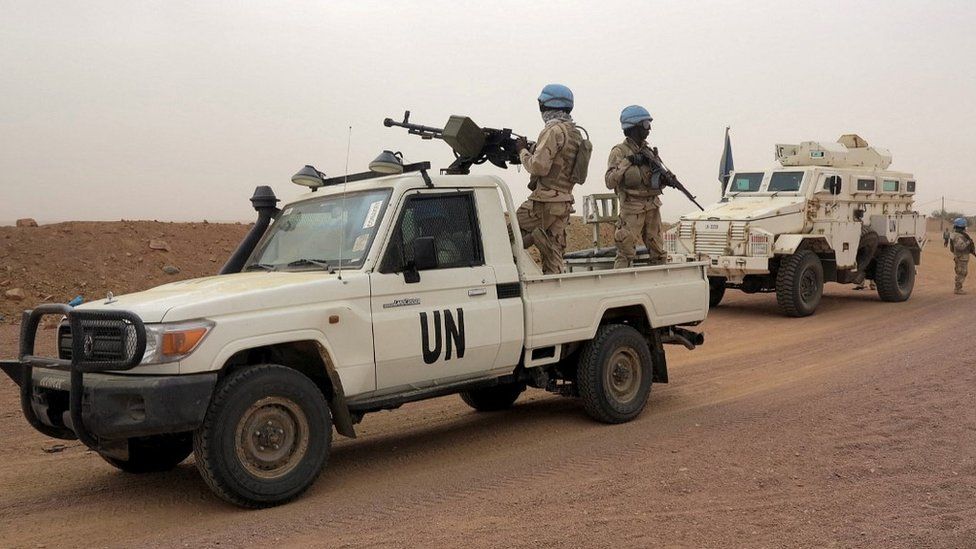-

-
-
Loading

Loading

After a decade-long mission in Mali, UN peacekeepers are completing their withdrawal on Sunday. The Multidimensional Integrated Stabilization Mission (Minusma) began in 2013 following an armed rebellion, but the country's ruling military government has asked them to leave. The head of the UN mission expressed that although they accomplished a lot, they fell short of expectations. With 310 peacekeepers killed, Minusma became the UN's second deadliest mission globally. Mali informed the UN over the summer that its 12,000 peacekeepers needed to depart, and the UN Security Council voted for the mission's withdrawal. UN personnel have been leaving gradually for months, with a deadline of December 31st for complete withdrawal. Timbuktu, one of the remaining sites following the mission's end, was surrendered due to security concerns raised by the presence of militants. El-Ghassim Wane, leader of the UN mission, admitted that there was a gap between their mandate and what they were able to achieve. Mali is currently grappling with a fragile security situation, with active armed Islamist and independence movements. Furthermore, as Western influence declines, the Malian government is forging closer ties with Russia, including relying on the Wagner mercenary group. The mission began a decade ago after separatist rebels and Islamist fighters seized control of northern Mali in their bid for a separate state. French troops were deployed to suppress the uprising, followed by UN peacekeepers. Despite their presence, the threat from Islamist militants persisted, leading to thousands of casualties and displaced individuals. Additionally, the number of terror attacks and the recruitment of Malians into insurgent groups grew steadily, prompting France to announce the withdrawal of its troops last year. Following two coups in 2020 and 2021, Mali has been governed by military leaders. The country has been grappling with a pervasive jihadist insurgency that has rendered large parts of the north and east ungovernable. In recent years, the Islamic State in the Greater Sahara has made significant territorial gains in southeast Mali. Moreover, central regions have witnessed a surge in violence perpetrated by militants associated with al-Qaeda and Islamic State factions. In August, fighting resumed between separatists and government forces after eight years of calm as both sides scrambled to fill the void left by the departure of UN peacekeepers.